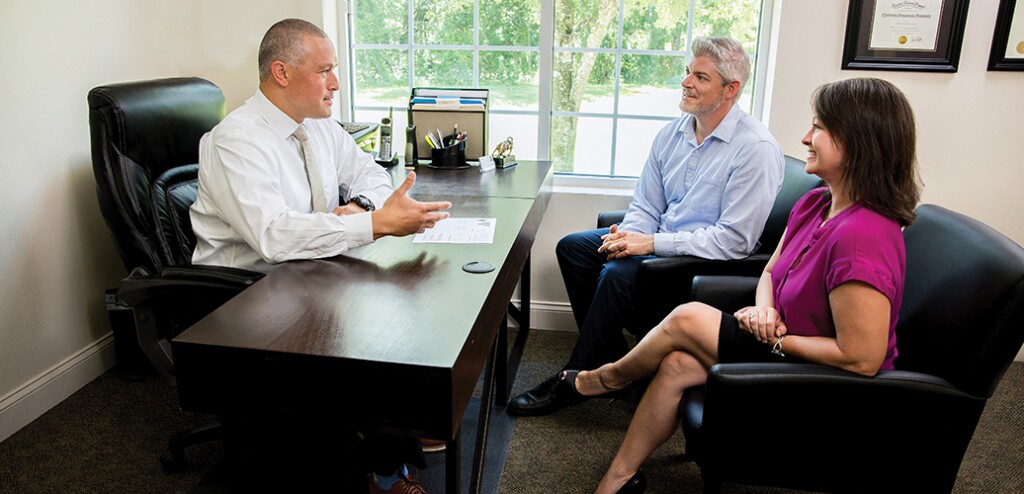Key takeaways
There are multiple ways to work with a financial advisor. You can connect in person with a financial advisor in your area, or you can use a virtual financial advisor who meets with you digitally.
The choice depends on your needs and preferences. The key to making the best decision is understanding the differences between how they typically operate and what they can offer.
In this article, we'll cover:
Virtual financial advice: Harnessing technology to meet your financial goals The traditional route: Local financial advisors The modern approach: Virtual financial advisors Key considerations in choosing a financial advisor Comparing the two: Local vs. virtual financial advisors Navigating your financial future with the right advice
How financial advisors harness technology to meet your financial goals
Technology provides the opportunity for people to meet virtually and at any time. Video call capabilities and online conferencing apps (which grew in use during the global pandemic of the early 2020s) made virtual meetings an everyday event.
Both local and virtual financial advisors utilize digital tools to develop financial plans and maintain clear communication with their clients. Whether you work with an online financial advisor or an in-person one, you'll likely have access to a financial planning portal or app. This allows you to easily monitor your financial plan, track your investments and make adjustments as needed.
The main difference is the extent to which technology is used to manage your account and communication.
What is a virtual financial advisor & how do they operate?
Virtual financial advisors are human financial advisors located remotely—though some in-person financial advisors offer a virtual option for convenience. Financial advisors who operate virtually rely heavily on technology to make account management more time efficient.
Rather than conversing with you face-to-face in their office to gather details about the state of your finances, they may simply have you fill out a digital form to work from. They'll likely use video conferencing to meet with you for all appointments. Virtual financial advisors may also work collaboratively with a team to handle your account rather than providing 1:1 service.
What are key differences between a robo-advisor vs. financial advisor?
A robo-advisor is an automated virtual financial advisor. Rather than a human making decisions, recommendations for portfolio adjustments are driven by algorithms. The focus is on providing an investment management service rather than comprehensive financial advice.
As you compare your options, be aware that robo-advisors also have advantages and disadvantages. Because there is no human involvement, robo-advisors can cost significantly less. You can also access them at any time. But robo-advisors can't understand how your
The traditional route: Local financial advisors
For years, working with a financial advisor meant walking into a physical office and having a discussion about how your finances and goals fit together with your investment personality and situation. This is still the preferred method for many people.
A major benefit of this option is the personal touch of working with someone who can get to know you on an individual basis. This allows your advisor to better understand how your feelings, opinions and beliefs come into play and then incorporate those elements into your financial strategy. This results in a highly customized approach that goes beyond the numbers to help you meet
Since local financial advisors work by appointment, the appointments may be less frequent, but more comprehensive, handling more action items in your overall plan at once since you're both in person.
The modern approach: Virtual financial advisors
Virtual financial advisors allow you to access financial advice from any location that has internet connectivity. Many clients prefer this option due to the increased convenience, flexibility and access to a pool of professionals beyond those in their local community.
It can mean more time savings and less hassle. Instead of physically visiting your financial advisor, you click and join a virtual meeting room instantly without ever leaving your home or office (or car or backyard). What might have taken an hour with travel might be accomplished in less than 30 minutes.
It also gives you access to a wider choice of financial advisors, which can mean expertise that fits your needs or just a better fit overall. If your strategy demands someone with specific qualifications and/or experience you can't obtain locally, you may find a financial advisor by looking for one that works remotely.
In the process of exploring your own personal financial plan?
Key considerations when choosing a financial advisor
Financial advisor location isn't the only thing to weigh when you're choosing who to work with. It may not even be the most important to you. When
Certifications & expertise
To ensure a financial advisor has the background and know-how to help you meet your goals, ask them what their training and qualifications are. They may have specific credentials but it's also important to know about the person's practice focus and experience. For example, those who hold the CERTIFIED FINANCIAL PLANNER™ certification are trained in comprehensive financial planning and may have a range of expertise that includes investments, insurance, taxation and retirement. Meanwhile, a Chartered Financial Analyst® has proven knowledge in investment management areas such as real-world portfolio management, financial reporting and analysis, wealth planning and economics.
Compensation
Knowing how you pay for the advice you receive is important. Some financial advisors earn commissions when you invest money or purchase financial products. Others may receive a percentage of investments they manage for you. Regardless of how you pay, you need to understand the financial advisor's compensation structure.
Licensure
Is the financial advisor appropriately licensed to do what you need them to? Some financial advisors hold the General Securities Representative, or Series 7 or Series 6, which allows them to sell securities. Others may be licensed investment advisor representatives and hold the Series 65 or 66, which allows them to provide investment advisory services. Many financial advisors have a combination of both types of licenses.
Service model
Some financial professionals only manage investments, while others may provide planning advice as well. They may go by different titles, such as financial advisor, financial planner or financial coach. Whichever financial advisor you choose, don't just assume they offer what you need—
Comparing virtual financial advisors vs. local financial advisors
How do you know which type of financial advisor is right for you? It's a matter of understanding your needs and comparing the two to see which best meets them.
| Virtual | Local | |
| Scheduling | On-demand during normal business hours | Predominantly based on financial advisor's schedule |
| Types of meetings | 100% virtual | Can be in-person, virtual or hybrid, depending on practice and individual |
| Size of team | May be an individual financial advisor or a collaborative effort involving several financial advisors | Often an individual, but can be collaborative effort across a practice or firm |
| State licensure | Frequently licensed in all 50 states in order to service large demographic area (U.S.A.) | Licensed in state(s) where business office(s) are located as well as states in which clients reside |
| Licensure (Series 7 and/or 65/66) | Varies by practice | Varies by practice |
| Connections to financial network team (attorneys, tax professionals, etc.) | Could be referred to a wide range of people who may or may not be geographically located near you | Typically maintains a network of professionals in which to refer clients |
| Initial fee | Often there is none | Varies by practice |
| Initial investment | Securities typically have an established minimum purchase requirement | Securities typically have an established minimum purchase requirement |
Find the right financial advisor to help navigate your future
Remember, it doesn't have to be one or the other. Whether you work with a financial advisor in a completely virtual capacity or a local professional with an office just down the road, there's likely to be at least some digital aspect to your relationship. Even when you could be in person, you may use an online investment management portal or do a video call for sheer convenience.
What works best to meet your needs is up to you. The most important thing is that you get the help you seek from a financial advisor who listens to you and helps you develop a plan to achieve your specific goals.
Thrivent financial advisors can help you whether you choose to visit







